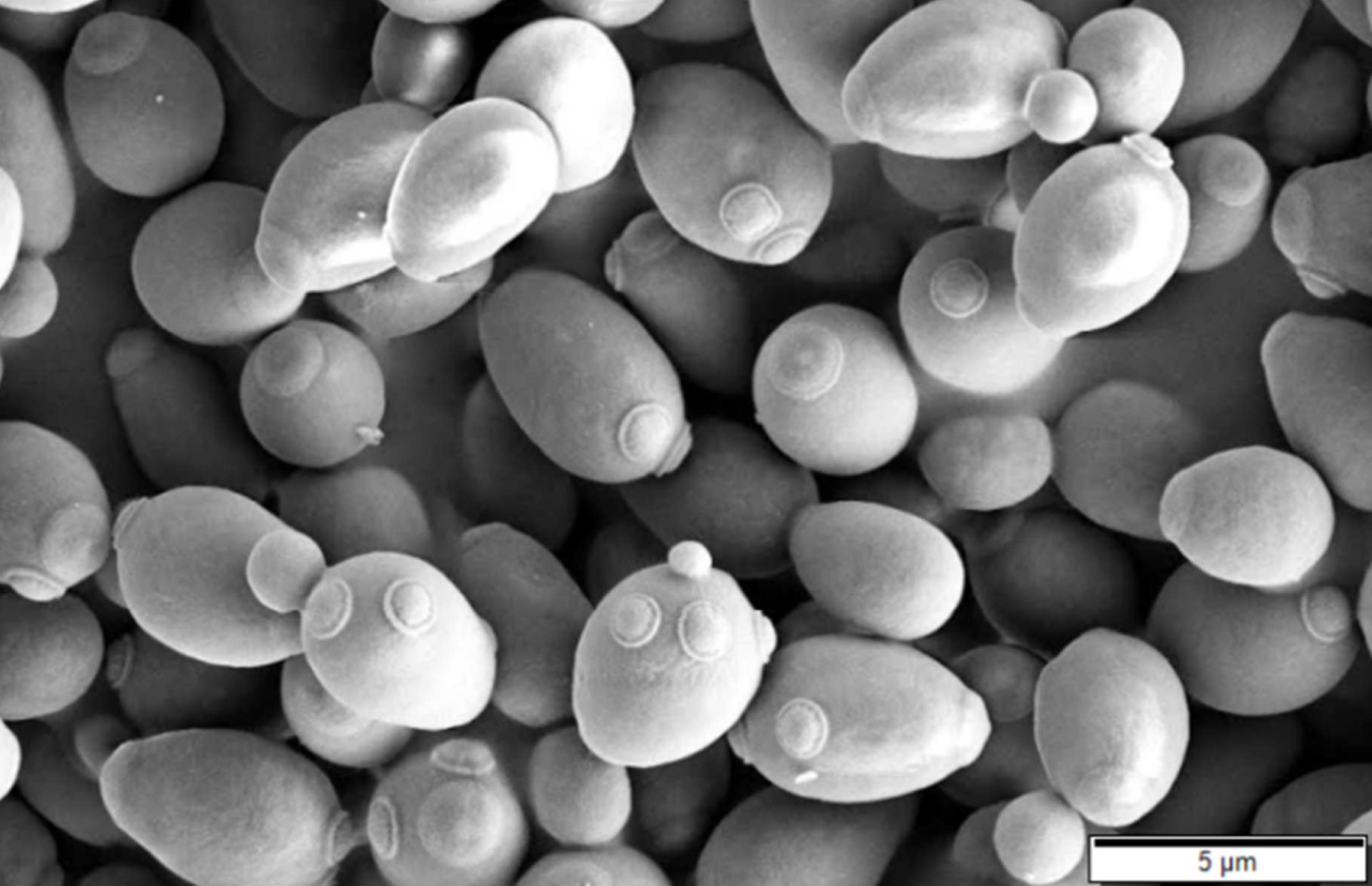Yeast – the single-celled organism crucial for brewing beer, baking bread, and making wine – is also a powerful test-bed for studying cell biology and disease. It has long been one of the best-studied model organisms for basic biological research because many essential cellular processes are the same in yeast and humans. Studying the biology of yeast and other microbes has enabled scientists to work out the connections between genes and proteins, and the functions they carry out in cells. In the lab, it is easy to manipulate, quick to grow, simple to subject to a variety of environmental conditions and controls, and – most importantly – controls cell division in a similar way to human cells.
Humans and Yeast
What makes yeast such a useful model organism? An important feature of yeasts (especially Saccharomyces cerevisiae - a.k.a. S. cerevisiae) is that their cells, like ours, are eukaryotic – meaning they have a nucleus containing DNA packaged into chromosomes. And although it may seem like yeast and humans have very little in common, at least 20 percent of human genes known to have a role in disease have counterparts in yeast. This suggests that such diseases result from the disruption of very basic cellular processes (such as DNA repair, control of gene expression, and cell division). Many of the core cellular and metabolic pathways thought to occur in humans can also be studied in yeast. For example, genes involved in yeast cell division are mutated in human cancers.
Yeast is a Workhorse!
From Wine and Beer to Drug Discovery and Biopharmaceuticals
In addition to yeast’s well-known applications in wine and beer production, it is also a workhorse discovery and manufacturing tool across many industries. Yeast has been a powerful model organism for understanding human biology and disease. Since 2001, 11 Nobel prizes were awarded for discoveries involving yeast research – quite an impressive accolade for yeast! Breakthroughs made by these Nobel Laureates and countless others have launched yeast as a way to investigate human genetics and test new drugs.
Wired magazine recently touted that yeast "eats sugar and burps out drugs." This isn't just a catchy headline! Thousands of drugs can be evaluated on yeast cells containing the functional equivalent of mutated human genes to see if the drugs can restore normal function. Because of this application, these compounds might then be possible treatments in humans.
Beyond human biology, S. cerevisiae is the main tool in wine, beer, and coffee production because of its enormous fermentation capacity and its high ethanol tolerance. It is also used as a “cell-factory” to produce commercially important proteins (such as insulin, human serum albumin, hepatitis vaccines). About 20% of biopharmaceuticals are produced by yeast, the advantages being that as a eurkaryotic model enables production and proper folding of many human proteins.
Yeast and Cancer
Over the last several decades, researchers have been tirelessly interrogating all of the mutations that cause cancer in humans. Dr. Leeland Hartwell, a biologist and 2001 Nobel Laureate, was one of the first scientists to discover some of the mutations involved in cancer. Since then, many of the mutations found so far are in genes involved in some way with cell division and DNA replication. And in many of these cases, as with Dr. Hartwell, these mutations have been found in other organisms, like yeast, before their relevance in human cancer was realized. Through Dr. Hartwell’s work, he found that genes involved in the “cell division cycle” (CDC) in S. cerevisiae, were also found in a similar capacity in humans. Over his career, he identified over 100 genes involved in the control of cell division. The discoveries made by Dr. Hartwell and others using yeast as a model organism have contributed significantly to our understanding of how cell division is controlled in eurkaryotic cells. This understanding has had broad applications across many biological fields including the prevention, diagnosis, and treatment of cancer.
Learn more about the impact of Dr. Hartwell's discoveries in this article published by Fred Hutch.
Expedited Experiments with Yeast
What would happen if scientists were able to expedite their research by several orders of magnitude. What if multiple expertiments could be run at the same time, with data delivered almost instantaneously? How much more quickly could they target new drugs and therapies to treat humanity's most deadly diseases?
Fenologica's platform quickly performs multiple experiments at a time and enables real-time analyzation of results, allowing researchers to rapidly gain valuable insights that will positively benefit humanity.
Learn more about our platform.

